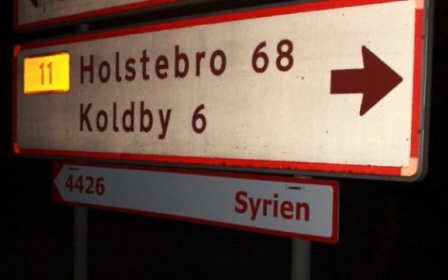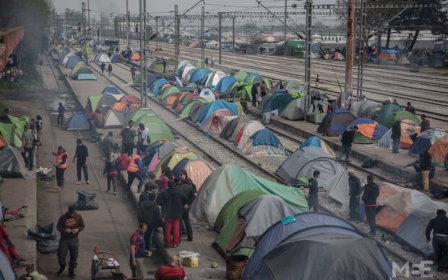Criticism grows over UK's refusal to take in 3,000 child refugees

The UK's governing Conservative Party has come under fire after its MPs struck down a parliamentary bill calling for 3,000 unaccompanied child refugees, left stranded in other parts of Europe, to be let into the UK.
Shouts of “Shame” from the opposition benches echoed through the House of Commons after members voted down the amendment by 294 to 276 on Monday evening.
Shadow immigration minister, Keir Starmer, said that the opposition Labour Pary would continue to push for the UK to do more despite the defeat. Labour has since tabled an alternative proposal, due to be debated in the House of Lords, the upper parliamentary chamber, as early as this afternoon.
“We can’t turn our backs on these vulnerable children in Europe, and history will judge us for that,” he told BBC Radio 4’s Today programme on Tuesday. “It’s not over: the fight will go on.”
Kirsty McNeill, advocacy director at Save the Children, said the vote was "deeply disappointing".
"Across Europe, thousands of these children are alone and frightened as they go to sleep on roadsides, in police cells and in informal camps. Some are as young as 10 and many of them have fled war and persecution to seek refuge in Europe – they need our help," she said in a statement.
“This problem isn’t going away, it is getting worse. The government has not yet responded to the groundswell of public support and MPs of all parties who have called for the UK to offer safety to lone children in Europe."
Help Refugees, an NGO working to help and protect refugees and migrants in Europe said that they were “deeply disappointed that Britain’s politicians have voted against offering protection to 3,000 of these youngsters” who have fled “terror and conflict in the hope of finding safety on Europe’s shores.”
“They remain vulnerable to exploitation and inhumane living conditions. We will continue to fight for their safeguarding and do everything possible to ensure they do not join the ranks of the 10,000 unaccompanied minors that Europol have charted as missing in Europe,” the group added in a statement.
The so-called Dubs Amendment was introduced into the House of Lords by Lord Alf Dubs, a Labour peer, who came to Britain as a child refugee from Czechoslovakia prior to World War II breaking out under a scheme known as the Kindertransport that brought some 650 largely Jewish children to the UK.
Many Conservative MPs had suggested they would rebel against the party line to support the measure to bring in the 3,000 minors some of whom have relatives in the UK. However, pressure from the Home Office, which said that it would instead take in 3,000 people from Syrian refugee camps in Turkey, appears to have turned the tide at the last minute.
Tim Farron, the leader of the Liberal Democrats party, said the Home Office announcement made last week was “a blatant attempt to buy off compassionate Tory MPs in a desperate last-ditch effort to avoid a government defeat.”
The Conservative leadership and the Home Office have both argued that the measure would only encourage people to try and risk their lives in a desperate attempt to come to Europe.
James Brokenshire, the Minister for Security and Immigration, told MPs that the government "wholeheartedly shares" the desire to protect unaccompanied children.
But any response needed “to be careful not to inadvertently create a situation in which families see an advantage in sending children ahead, alone and in the hands of traffickers, putting their lives at risk by attempting treacherous sea crossings to Europe."
Stephen Phillips, one of a few Conservative MPs to vote for the amendment, criticised the government for its failure to protect vulnerable refugee children in a speech that has been widely shared online.
New MEE newsletter: Jerusalem Dispatch
Sign up to get the latest insights and analysis on Israel-Palestine, alongside Turkey Unpacked and other MEE newsletters
Middle East Eye delivers independent and unrivalled coverage and analysis of the Middle East, North Africa and beyond. To learn more about republishing this content and the associated fees, please fill out this form. More about MEE can be found here.




